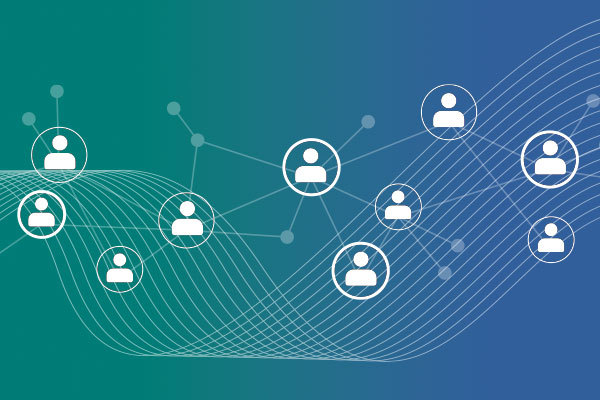Drive Better Margins and Customer Experience With Zilliant + SAP
By Zilliant
Oct 27, 2020
Table of Contents
Zilliant’spartnership with SAP continues to grow and strengthen to add value to our joint customers. Our price optimization and management solutions integrate seamlessly via high-availability REST API into SAP ERP, CPQ and eCommerce platforms, delivering market-aligned pricing directly into the hands of SAP users and their customers across a wide array of industries.
One ofthose industries we address togetheris wholesale distribution. B2B distributors facemassive complexity, with thousands of products and customers, hundreds of sales reps, volatile costs and constantly evolving competitive dynamics, including increasing threats from non-traditional online competitors. As a result, distributors often struggle to set, manage and execute pricing strategies that simultaneously meet P&L objectives and enable salesrepsto win deals.
Further reading: [Whitepaper]Zilliant & SAP: Enabling More Profitable Pricing in Wholesale Distribution
Pricing is by far the most effective profit lever available to any company. However, many distributors often set pricing in terms of overly broad target margin percentages, cost-plus rules or list-minus targets, and ultimately relegate final pricing decisions to the field.Themajority of distributors are missing out on an achievable 100 to 300 basis points in incremental margin as a function of poor pricing.
Furthermore, inconsistent pricing compromises the customer experience.Wholesale distributors must provide real-time, consistent, personalized pricing to compete in today’s marketplace. In order to do that, issues that have built up over time must be systematically addressed.
Theideal solutionholistically addresses price setting,optimizationandmanagementchallenges while seamlessly integrating with best-in-classSAPERP, order management, CPQ and Commerce solutions, tying pricing strategy to execution and results.
The Case for Change
The average B2B distributor is losing0.6% to5.2% of profit each year due to misaligned market pricing and 1.4% to6.5% because of inconsistent pricing practices, based onbenchmark data.
Misaligned pricing refers to transacting business at prices thatdo not reflect market conditions. This can include a variety of phenomena, including prices that are rounded arbitrarily to rule-of-thumb margins or discounts, or prices that aretransacted below minimum margin thresholds.It also includes pricing that does not quickly and accurately account for cost changes. Risk exposure to the latter is only increasing as cost changes occur more frequently and unpredictably in a global recessionary environment.
Inconsistent pricing means that prices are transacted below a minimum marginthreshold orare showing exceedingly wide variances under similar selling circumstances. Price grooving is also a common source of margin leakage, creating inconsistent prices where prices are rounded to the nearest dollar or offered at only discrete margins, such as 30%, where perhaps a margin of 33.5% would have been sufficient to win the deal.When prices fail to reflect customers’true price elasticity,it results in too many transactions being over- orunderpriced.
No one sets out to make these kind of pricing mistakes. So why do they occur? Pricing in wholesale distribution is difficult due to the acceleration of external pricing triggers in modern business coupled with outmoded internal processes that can’t scale to meet the moment. Pricing teams are constantly in a reactive position – trying to pass through increasingly frequent cost changes, setting a pricing strategy that sales reps willtrust, making quick decisions based on inventory, or keeping up with the omnichannel demands of customers. Without the technology toolset and ability to analyze a massive volume of data and collaborate within a single source of pricing truth, distributors find themselves forever behind the market, leaking margin all the while.
An Integrated Pricing Solution is Necessary
Solving for these pricing challenges requires investment in people, processes and technology to efficiently and effectively set, optimize, manage, execute and deliver prices in all go-to-market channels. Pricing teams need intelligent tools and reliable data when setting prices for each price mode, so that distributors can begin to use priceasa strategic lever to improve financial performance. Sales reps need market-aligned price guidance to make the best possible commercial decisions. Finally, customers expect price transparency and consistency, regardless of sales channel.
Zilliant’scloud-native technology accomplishes each of these use cases andhelpsbest-in-class distributorstake a smarterapproachtopricing, seamlessly integrated with SAP CPQ, S/4HANA ERP and Commerce Cloud.
A Reimagined Approach to Addressing Distribution Pricing Challenges
One of the major hindrances to tackling a pricing project built on a data science model is the common fear among distributors that their underlying data is faulty. In reality, B2B companies have more readily usable data than they realize. The transaction, customer and product master data residing in an ERP system, is just waiting to be mined by an intelligent pricing system. This is typically the cleanest and most reliable source of data and becomes the foundation of a price optimization and/or price management model.
Data inputs can be integrated from an unlimited number of sources to a price optimization and management system via a flat file batch process, or through a high-availability REST API.
Pricing outputs from the pricing system can be integrated via batch process or a real-time integration that does not require data uploads to ERP systems. As an example, real-time API calls can be made from S/4HANAtoZilliantto return the rightpricecondition value. This eliminates the technicalchallenges of mass uploadingto the ERP and allows companies to optimize prices at a more granular level and modify guidance at the speed of the digital world.
Wholesale distributors who have taken this approach are more responsive to customers with relevant prices and give their sales teams the upper hand in negotiations. Armed with the most competitive, market-aligned prices directly in their quoting system, sellers walk into deals with confidence.
Pricing teams benefit from a far superior 1-2 punch of price administration and price execution. A centralized price management system supported by a rules engine gives stakeholders across the business visibility into what each price is, why it was set, how costs are passed through and how price varies depending on volume/customer/region/etc. When used in concert with a price optimization solution that can consume and analyze vast swaths of pricing data and account for all the factors that influence price, companies report near-immediate ROI.
An additional benefit to this connected system is the full picture of data that emerges when powerful cloud-based systems talk to each other. The pricing platform can collect win/loss data fromSAPCPQ and ingest data collected from eCommerce solutions, such as cart abandonment data, to enhance its elasticity measurements.
One Integrated Pricing Solution
How do all these concepts come together to create one dynamic system of commercial excellence?Zillianthas teamed up with SAP to provide SAP CPQ, Commerce Cloud andS/4HANA ERPcustomers easy access toZilliant’smarket-leading price optimization & management solutions, includingZilliantPrice Manager™ andZilliantPrice IQ®.
Zilliant’scloud-native SaaS platform uses high-availability REST APIs to infuse SAP solutions with intelligent pricing, enabling companies to make better pricing decisions, faster.WithZilliant’spricing solutions seamlessly integrated, wholesale distributorsare able toget the most out of their SAP investment while strengthening commercial performance in a tumultuous marketplace.
To learn more, contact ushere.



